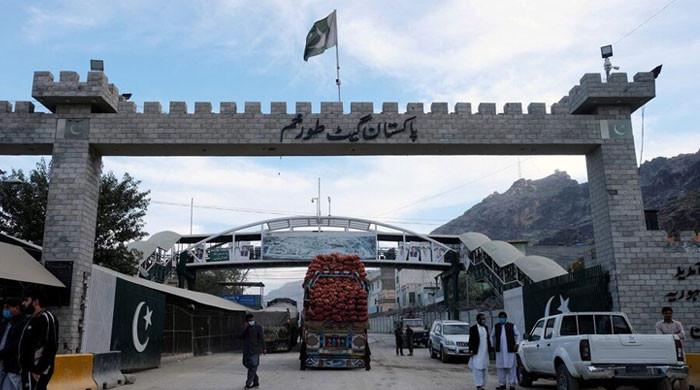Investigation launched into deaths 'linked to recent power cuts in Karachi': Nepra
K-Electric petitions Nepra for significant tariff adjustments, seeking a 15% dollarised return on equity
June 28, 2024

- KE's technical member actively involved in inquiry.
- JI voices apprehension over 18-hour daily power cuts.
- KE assures that consumers would not bear burden.
ISLAMABAD: As Karachi faces loadshedding amid scorching hot weather, National Electric Power Regulatory Authority (Nepra) Chairman Waseem Mukhtar said an investigation has been launched into fatalities linked to recent power cuts, The News reported Friday.
The regulatory body’s technical member is actively involved in the inquiry, he said.
Karachi has been gripped with extreme weather provisioning scorching temperatures in recent days with dozens of mysterious bodies being found in the city.
Residents expressed dismay over extended power outages in the city, with consumers in several areas experiencing prolonged loadshedding. Despite full recoveries in certain zones, the issue persists.
Imran Shahid, representing Jamaat-e-Islami Karachi during a public hearing on Thursday, voiced apprehension over the 18-hour daily power cuts in Karachi, urging Nepra to deploy its team to prevent worsening conditions.
There is an emergency-like situation in hospitals as a result of prolonged outages that affected hundreds of residents and several people lost their lives.
KE seeks major tariff adjustments
Despite criticism from the masses, K-Electric has petitioned the Nepra for significant tariff adjustments, seeking a 15% dollarised return on equity and 16.67% for transmission and distribution over the next seven years under its multi-year tariff (MYT) plan.
The utility, citing benchmarks in the Independent Power Producers (IPPs) sector, argued for indexed quarterly adjustments similar to the Lahore-Matiari HVDC transmission project.
However, this stance and comparison to IPPs drew strong criticism from representatives of the Karachi business community.
In the public hearing, Nepra reviewed the KE's proposals for distribution, transmission and supply tariffs spanning fiscal years 2023-24 to 2029-30.
The company emphasised continuity with previous tariff provisions and Rs10.69 per unit tariff increase from Rs34 to Rs44.69 per unit. Breakdowns included transmission charges of Rs3.48 per unit, distribution charges of Rs3.84 per unit, supply charges of Rs5.96 per unit and generation costs totaling Rs31.42 per unit.
To meet financial needs, KE plans to finance 75% of its requirements through foreign loans due to limited local funding availability exacerbated by recent national credit downgrades.
The company also sought tax concessions on interest payments and highlighted ongoing efforts towards operational restructuring.
KE assures consumers to not bear burden
Despite the proposed tariff increase, KE assured that consumers would not bear the burden due to national subsidies maintaining a uniform tariff of Rs35 per unit for other power companies.
The Karachi business community representatives criticised KE's tariff proposals, citing incomplete projects and discrepancies in operational losses.
One consumer argued that despite prior approvals, the utility’s demand for increased costs was premature. He proposed strict timelines for project completions with penalties for delays, highlighting concerns over the company’s management of transmission losses, which rose to 1.3% compared to 0.83% in the previous seven-year period ending March 2023.
They also raised issues regarding Aggregate Technical & Commercial (AT&C) losses, which decreased from over 43% at privatisation in 2005 to 18.1% in 2022 but remained high compared to state-run utilities. He questioned the utility’s financial strategies in light of recent credit downgrades, suggesting alternatives like increased loan borrowing or issuing Sukuk bonds.
Addressing KE's comparisons to the Lahore-Matiari project, he emphasised differences in project scope and questioned government support for the utility, urging it to bear full financial responsibilities and refrain from likening itself to IPPs.
In response to KE's claims of minimal consumer impact from tariff increases, he cautioned that such adjustments could affect consumers indirectly through mechanisms like monthly fuel cost adjustments (FCA), quarterly adjustments (QTA) and transmission and distribution losses.
In its supply tariff petition, KE has proposed a rate of Rs5.96 per unit, citing a projected historical compound annual growth rate (CAGR) of 2.4 percent.











